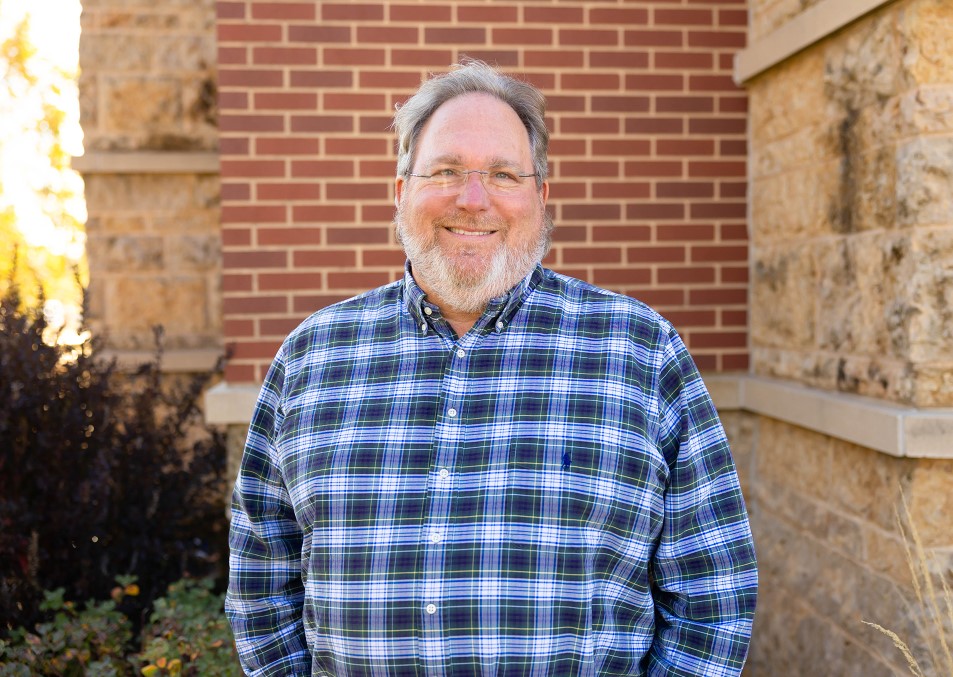
(Photo: Iowa Soybean Association / Joclyn Bushman)
Roger Wolf: A friend to Iowa's farmers
February 1, 2025
We’ve heard it said that people come into our lives, for a reason
Bringing something we must learn
And we are led to those who help us most to grow
If we let them and we help them in return
Well, we don’t know if we believe that’s true
But we know we’re who we are today because we knew you.
With apologies to Stephen Schwartz, these modified lyrics from his song “For Good” might well describe Iowa Soybean Association’s (ISA) Roger Wolf. For 25 years, Wolf has indeed been that something “good” for conservation and water quality efforts across the state. His leadership has shaped those efforts and it’s, in part, why he has been named the recipient of the 2025 Friend of the Iowa Soybean Farmer Award. Sponsored by Cargill, the award recognizes someone who has shown a deep understanding of agricultural issues and supports Iowa soybean farmers through their actions.
Wolf’s work
As ISA director of conservation, he’s continually pursued new ways for farmers to improve the quality of their soil and water while keeping profitability at the forefront.
Wolf created conservation agronomist positions that leverage agronomic knowledge and promote the value of conservation practices. Iowa farmers now have access to a network of 18 conservation agronomists statewide who assist with conservation practice implementation, share timely information, and provide access to cost-share opportunities.
Wolf played a critical role in developing the Soil and Water Outcomes Fund (SWOF), an outcomes-based financial incentive program for farmers implementing conservation practices. He helped spearhead programs like the Front 40, a platform for Iowa's conservation-minded farmers, and ACWA, a non-profit association of ag retailers and support companies across the Iowa that helps farmers improve their agronomic performance while supporting environmental improvement efforts. As executive director for ACWA, he led the expansion from one watershed to a large-scale water quality initiative.
A cooperative endeavor
When he started at ISA in 2000, he and others made several trips to Washington, D.C., to meet with policymakers about the importance of programming, cooperative agreements, watershed work, on-farm research and nitrogen management.
“We made the case for targeted initiative with the Mississippi River Basin,” he says. “And we were also there during the early talks about conservation and the emergence of the Regional Conservation Partnership Program and for ways for our partners to engage with the U.S. Department of Agriculture (USDA).”
Wolf and others focused much of their time on energy use data and how that information could improve farmers’ operations, helping them become more energy efficient while improving soil and water quality.
While the recognition is humbling, Wolf defers much of the credit to those who work alongside him and the Iowa farmers who understood the importance of conservation and water quality initiatives.
He says farmer-leaders like Ron Heck, Wayne Fredericks, John Askew,
Curt Sindergard, Dean Coleman and others, were real believers in the early days of Wolf’s tenure.
Their legacy, he says, is evident in the healthier fields and waterways throughout the state, as well as the evolution of ISA’s Research Center for Farming Innovation (RCFI). The work, like improving Iowa’s watersheds, is truly a cooperative endeavor.
“It’s not us dictating what to do in a watershed, it is us working in a watershed with famers to come up with a plan,” he says, noting that ISA has crafted nearly 30 small scale watershed plans over the years.
Reflection before retirement
Retiring this year, Wolf reflects on 25 years.
“I always think about what's my favorite thing to do and that’s to build out programs with a vision and get a lot of different people and partners involved, securing funding and start hiring people,” he says.
“I’m most proud of the staff, the partnerships and our track record, which speaks for itself. We’re doers and implementers. We do it on behalf of farmers and for farmers. They are directly impacted in every aspect of
what we’ve done.”
Back